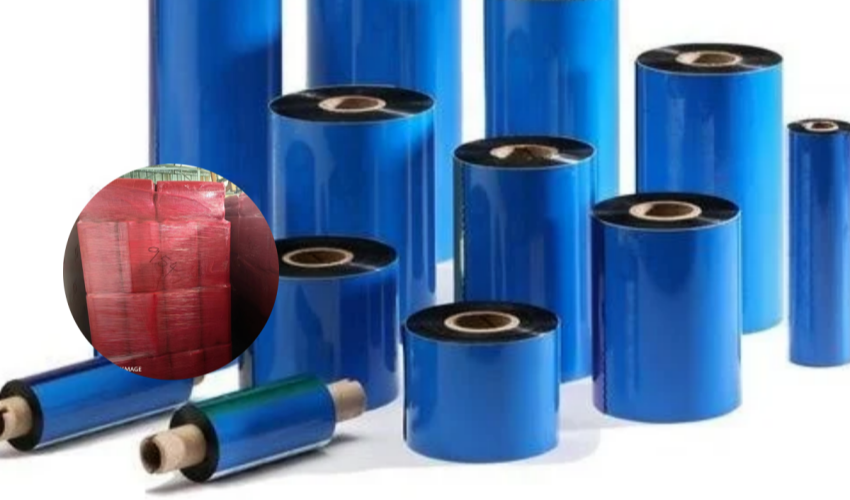
In industries that work with metal components, corrosion protection is essential to maintain product integrity and longevity. Metal parts are vulnerable to rust and degradation, especially when exposed to moisture, dust, and other environmental factors. Using VCI stretch film—a Volatile Corrosion Inhibitor film—is a highly effective solution to protect metals from rust and corrosion. This film emits inhibitors that prevent corrosion by creating a protective barrier around the metal surfaces, making it ideal for shipping, storage, and industrial applications. Various factors influence the anti-rust VCI stretch film price, including the film’s material quality, thickness, dimensions, and the brand or manufacturer. Understanding these price-influencing elements helps businesses make cost-effective choices for metal protection.
Anti-rust VCI stretch film is a specialized protective material designed to prevent corrosion on metal products during storage and transportation. VCI, or Volatile Corrosion Inhibitors, are compounds embedded in the film that emit corrosion-inhibiting molecules. When metal components are wrapped with this stretch film, these molecules create an invisible barrier on the metal surface, blocking rust-causing elements like moisture, dust, and oxygen. This protective layer helps ensure that the metal stays in pristine condition throughout its storage or transport phase.
Investing in VCI stretch film can be a cost-effective solution for companies handling large volumes of metal parts, as the VCI antirust stretch film quotes is outweighed by the savings in preventing corrosion and extending the lifespan of metal products.
The anti-rust vci stretch film quotes is influenced by multiple factors, each contributing to the film’s overall cost and value. Understanding these factors can help businesses select the most cost-effective options without sacrificing protection for their metal goods.
Obtaining accurate quotes for VCI rust preventive stretch film is essential for budget planning and ensuring competitive pricing. Here are steps to effectively gather quotes:
When evaluating the anti-rust VCI stretch film price, it’s helpful to compare the pricing range specifically for LLDPE-based (Linear Low-Density Polyethylene) stretch films. LLDPE is commonly used due to its flexibility, strength, and effective anti-rust properties, making it ideal for protecting metal components.
The price of LLDPE VCI stretch film can vary widely depending on factors like size, thickness, and brand. For example, a standard roll of VCI stretch film (typically 18″ x 1500′ at 1 mil thickness) might cost around $50 to $100 per roll, depending on the brand and supplier. Generally, smaller rolls, such as 12″ x 1500′, will be less expensive, while heavier gauges or thicker options like 2 mils will be on the higher end of the pricing range.
A common purchase option is a carton of 4 rolls of 18″ x 1500′ VCI stretch film, ideal for many industrial applications. For instance, a package of 4 rolls might cost between $200 and $400, depending on the specific thickness and brand. This pricing can vary further if the film is a premium variety with additional features, like enhanced puncture resistance or greater stretchability. For example, standard VCI stretch film might cost around $50 per roll, whereas a premium option could increase to $90 per roll, illustrating the variability within the anti-rust VCI stretch film price range.
While higher-priced VCI stretch films may seem costly upfront, they often provide better protection and longer durability, which can be beneficial for high-value metal parts or products in long-term storage. Premium LLDPE VCI films are often formulated with advanced corrosion inhibitors and reinforced layers, reducing the need for additional protective materials and minimizing product loss due to rust damage. Therefore, for applications requiring reliable, long-term protection, investing in a higher-quality VCI film can offer substantial value for money.
When selecting the right anti-rust VCI stretch film for your business needs, there are several critical factors to consider. Understanding the specific requirements of your products, the environment in which they will be stored, and the overall cost-effectiveness of different options can help you choose the best film. Here’s a detailed look at the key considerations when making your decision:
By evaluating these factors—material compatibility, intended application, environmental impact, and durability—you can make an informed decision that ensures you get the best value from your anti-rust VCI stretch film purchase, while effectively protecting your metal components from corrosion.
VCI (Volatile Corrosion Inhibitor) stretch film is a specialized type of stretch film that is infused with corrosion inhibitors designed to protect metal products from rust, tarnish, and oxidation during storage and transportation. This film is typically made from polyethylene and is engineered to release vapor that prevents the formation of rust on metal surfaces. The vapor forms an invisible protective layer that shields metals from the harmful effects of moisture, air, and other environmental factors. The primary advantage of VCI stretch film over traditional stretch films is its ability to provide anti-corrosion protection without the need for additional coatings or treatments. It is often used in industries like automotive, aerospace, machinery, and manufacturing, where metal components need to be stored or shipped without the risk of corrosion. The film is easy to apply, self-adhering, and can be used with standard stretch wrapping equipment. VCI stretch film is a cost-effective solution for safeguarding metals over long periods, even in humid or corrosive environments.
The width of stretch film typically varies depending on the specific needs of the user and the type of product being wrapped. The most common width options for stretch film include 12 inches, 15 inches, 18 inches, and 20 inches, with 18 inches being the most widely used. These widths are often suitable for wrapping pallets, boxes, and larger products in warehouses and distribution centers. For smaller or more specialized applications, narrower rolls such as 12 inches or 15 inches are also available. The choice of width depends on the size of the load and the level of protection required. For example, an 18-inch roll of stretch film is commonly used in industries where products have varying sizes and require a stronger wrap, ensuring a tighter and more secure hold. On the other hand, narrower widths like 12 inches are ideal for smaller loads, ensuring efficient use of the film without unnecessary wastage. The width of the stretch film should be chosen based on the product’s dimensions, the type of load, and the wrapping equipment being used.

My name is James Thompson, and I’m the editor of this website dedicated to Stretch Film, Pallet Wrap, and Stretch Wrap products.
My passion for packaging began when I noticed the challenges companies face in securing their products efficiently for transportation and storage. This inspired me to delve deep into the world of stretch films and pallet wraps, exploring the latest technologies and best practices.
I aim to provide valuable insights, practical tips, and up-to-date industry trends to assist you in making informed decisions. Whether you’re a small business owner or part of a large corporation, my goal is to support you in optimizing your operations and ensuring your products reach their destination safely.
Thank you for visiting, and I look forward to accompanying you on your journey toward better packaging solutions.
Comments are closed